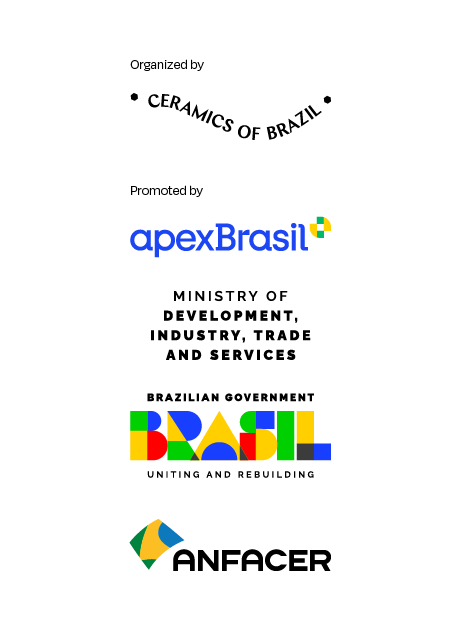
On Tuesday, May 20, Anfacer held the webinar "Carbon Market Perspectives for the Brazilian Ceramics Industry". In addition to clarifying the main points about greenhouse gas emission inventories and providing an overview of the national scenario and upcoming government requirements, the main objective of the meeting was to promote reflection on decarbonization in the ceramic tile and sanitary ware industry and reinforce the importance of carrying out a new sector report.
"Sustainability is one of Anfacer's strategic priorities for 2025. The ceramics sector has increasingly sought to integrate sustainable practices into its production chain, and we understand that having a diagnosis of emissions is a fundamental step in this process," said Sergio Wuaden, chairman of Anfacer's Board of Directors, during his opening speech at the meeting.
The webinar was exclusive to the organization's members and featured presentations by Renata Grisoli, from the Ministry of Science, Technology and Innovation (MCTI); Juliana Falcão, from Base Zero Consultoria em Sustentabilidade and professionals Natalia Almeida Buchwitz and Pedro Henrique Iequer, from Eccaplan Consultoria em Sustentabilidade.
Check out the key points of the debate:
In November, Brazil will host COP30 in Belém, in the state of Pará, and sustainable solutions are in the spotlight of government decision-making. And it is in this scenario that the relationship between industry and the government becomes even more relevant, with the need to show the capacity of industrial sectors to adopt sustainable practices and meet the targets set out in the Paris Agreement.
The country has already presented its objectives, including a 48% reduction in emissions by 2025, through actions described in the Climate Plan - a document that sets out the actions to be taken by 2035 to tackle climate change.
In addition, Brazil will also need to present a solid plan at COP30, demonstrating commitment and concrete strategies for mitigating environmental impacts, providing an opportunity for the country to stand out globally as an environmental leader, working together with all industrial sectors.
Anfacer took the initiative of structuring a sectoral inventory with the aim of collecting concrete data on emissions in the wall and floor tiles industry and, with this, drawing up more strategic actions to mitigate environmental impacts.
This data will be fundamental for dialogue with the government's regulatory bodies, especially to help draw up more effective public policies, guaranteeing the rights and interests of all those involved.
In addition, by participating in the construction of a sector report, companies will be able to carry out their own emissions reports more efficiently.
"We are confident that, with an integrated and collaborative approach, it will be possible to strengthen the National Inventory as a strategic tool for the sustainable development of Brazilian industry." Wuaden concludes.
The meeting covered various other points about laws, systems and official treaties relating to the environment. The scope and timetable of the Sectoral Inventory project were also presented, in order to clear up any doubts and encourage member companies to join.
The webinar was an action carried out through theAnfacer + Sustainable Initiative, reinforcing the organization's commitment to developing the ceramics sector in line with the new demands of the market and with respect for the environment.
As part of the Initiative, Anfacer has already carried out two sectoral inventories of GHG emissions, in 2021 and 2023.
Find out more about the Anfacer + Sustainable Initiative: https://www.anfacer.org.br/mais-sustentavel/home

